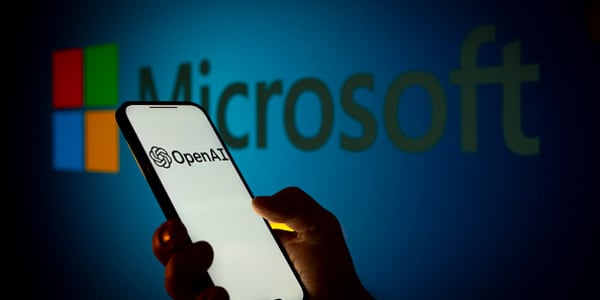Founders: Ali Ghodsi (CEO), Matei Zaharia, Reynold Xin, Ion Stoica, Patrick Wendell, Andy Konwinski, Arsalan Tavakoli-Shiraji
Launched: 2013
Headquarters: San Francisco
Funding: $3.5 billion
Valuation: $38 billion
Key technologies: Artificial intelligence, cloud computing, low code/no code software, machine learning
Industry: Enterprise technology
Previous appearances on Disruptor 50 List: 3 (No. 34 in 2022)
In August 2021, Databricks did something that seemed very of the times for the enterprise startup world: it raised a massive amount of investor capital at a valuation of $38 billion. But as the situation became shaky in the tech world, that valuation started to come in for some scrutiny. A year later, though, Databricks would announce another milestone that set it apart from many distressed peers. Its CEO and co-founder Ali Ghodsi told the Wall Street Journal that the company had met a goal it had been promising since its big 2021 deal: reaching $1 billion in annualized revenue.
That revenue mark didn't come out of nowhere: at the time of its 2021 fundraising, the company said it was already running at the recurring revenue rate of $600 million. And its value proposition — a key vendor in the cloud helping to manage the massive amounts of data being generated, and increasingly using AI to make sense of it all for thousands of enterprise clients — has become critical in industries far beyond the tech field. Case in point: Last month, Databricks announced a new platform for the manufacturing sector, as the old guard of the economy has become a newly connected-industry of the 5G, cloud software and sensor era.
While there have been reports that even its valuation has taken a haircut, it's been a "trim" rather than a buzz saw.
But Databricks isn't about to go public in the currently frozen market for tech IPOs.
Snowflake, its closely public market comparison and the largest software IPO ever, has lost one third of its value since its 2020 public offering.
For now, Databricks' CEO shrugs off speculation about an IPO. "If you're public, the only thing that matters is cash flow right now and what are you doing every day to increase your cash flow," Ghodsi told CNBC last December. "I think it's short-sighted, but I understand that's what markets demand right now. We're not public, so we don't have to live by that."
Unlike many once high-flying tech startups, he told CNBC that Databricks has "a lot of cash."
Notably, it has not announced any major layoffs at a time when tech sector job losses are occurring at a pace that rivals the dotcom crash.
While the big IPO that the market was expecting remains on indefinite hold, Databricks has been pressing ahead with key AI initiatives, and global expansion and hiring in Europe, India and Israel.
As No. 1 Disruptor OpenAI's ChatGPT has dominated the discussion, Databricks has been developing its own large language model, Dolly, and planning to help enterprise clients create their own LLMs as well. It recently acquired Okera, described as the world's first AI-centric data governance platform, and made a strategic investment through its venture arm in growing data security startup Immuta.
In all, Databricks says 9,000 organizations, including over 50% of the Fortune 500 — rely on its Lakehouse Platform to crunch their data, and apply analytics and AI, with a client roster that cuts across every sector and organizational type, with examples including Adobe, AT&T, Nasdaq, Rivian, HSBC, Sam's Club, ADP, Warner Bros. Discovery, Air Canada, the U.S. Air Force, BP, Bridgestone, Condé Nast, multiple MLB teams, CVS Health, Deloitte, Hertz, Honeywell, and the IRS.
It counts Amazon, Google and Salesforce among its investors.
—CNBC's Ari Levy contributed reporting.
Sign up for our weekly, original newsletter that goes beyond the annual Disruptor 50 list, offering a closer look at list-making companies and their innovative founders.






















































